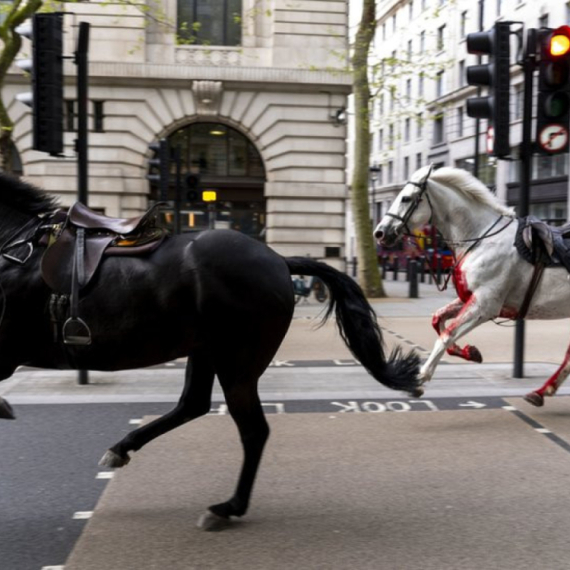British government “prepares Orwellian law”
The British government is pushing through an anti-terror law that will enable it to monitor all private electronic communication, including social networks.
Friday, 09.03.2012.
13:55

The British government is pushing through an anti-terror law that will enable it to monitor all private electronic communication, including social networks. Great Britain is already one of the most-watched societies in the world. With an estimated two million surveillance cameras, it has more CCTV per person than almost any other nation in the world, Russia Today (RT) writes. British government “prepares Orwellian law” Prime Minister David Cameron’s government is planning to cast its intrusive eye over online activity, phone calls and text messages, all under the guise of an anti-terror law. The law will also allow the government to have access to private Facebook messages. In accordance with the law, landline and mobile phone companies and internet service providers will store all users’ personal data for a year, including personal calls and messages. The security services will have real-time access to these databases at the click of a button – secretly living British citizens’ life with them. Privacy campaigners in Britain condemn the initiative, comparing the law with practices of the Chinese government. “This is the first step towards the government taking control of the internet,” insists Big Brother Watch Director Nick Pickles. “The only place in the world that’s got that kind of regulation is China. And I’m sorry, but Britain is not China,” he added. Many believe that the new legislation will leave people living in fear of Big Brother as if it were George Orwell’s 1984. “The problem here is that it’s intrusive. The sort of place where it might be useful could be anything; it could be tax, divorce, copyright infringement,” Open Rights Group’s Jim Killock points out. “Terrorism and serious crime is a tiny subset of the possibilities of what this information could be used for,” he warned. The most bizarre fact is that it will cost British taxpayers over GBP 1bn to be spied on by the government, according to Cyber security experts’ estimates. The controversial legislation still has to be adopted by the British parliament, which rejected a similar draft law in 2008 over fears of data safety. The greater fear this time is the threat to national security, with events like the Olympics, which will be held this summer in London, serving in favor of the government’s justification. index.hr
British government “prepares Orwellian law”
Prime Minister David Cameron’s government is planning to cast its intrusive eye over online activity, phone calls and text messages, all under the guise of an anti-terror law.The law will also allow the government to have access to private Facebook messages.
In accordance with the law, landline and mobile phone companies and internet service providers will store all users’ personal data for a year, including personal calls and messages.
The security services will have real-time access to these databases at the click of a button – secretly living British citizens’ life with them.
Privacy campaigners in Britain condemn the initiative, comparing the law with practices of the Chinese government.
“This is the first step towards the government taking control of the internet,” insists Big Brother Watch Director Nick Pickles.
“The only place in the world that’s got that kind of regulation is China. And I’m sorry, but Britain is not China,” he added.
Many believe that the new legislation will leave people living in fear of Big Brother as if it were George Orwell’s 1984.
“The problem here is that it’s intrusive. The sort of place where it might be useful could be anything; it could be tax, divorce, copyright infringement,” Open Rights Group’s Jim Killock points out.
“Terrorism and serious crime is a tiny subset of the possibilities of what this information could be used for,” he warned.
The most bizarre fact is that it will cost British taxpayers over GBP 1bn to be spied on by the government, according to Cyber security experts’ estimates.
The controversial legislation still has to be adopted by the British parliament, which rejected a similar draft law in 2008 over fears of data safety.
The greater fear this time is the threat to national security, with events like the Olympics, which will be held this summer in London, serving in favor of the government’s justification.









































Komentari 11
Pogledaj komentare